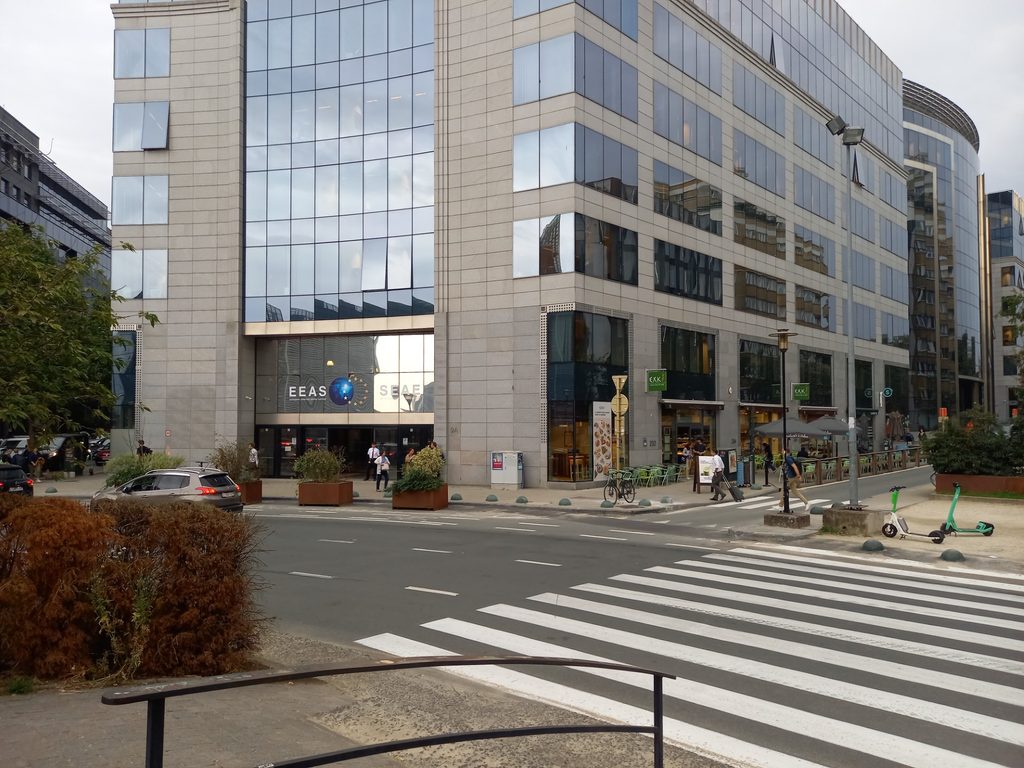The family of Johan Floderus, a Swedish official who works at the European External Action Service, has launched a public campaign after his case recently become known after his arrest in April last year.
At first, both the Swedish Ministry for Foreign Affairs and the European Commission declined to reveal the identity of the Swedish citizen detained in Iran. The New York Times was apparently the first to report about his imprisonment at the infamous Evin prison in Teheran after the EU and the Swedish authorities, as the newspaper claims, kept it under wraps for more than 500 days.
In a statement published on 10 September, on Johan’s 33rd birthday, family, friends, and supporters of him are calling for urgent international attention to secure his immediate release and safe return to Europe. According to the statement, he has become yet another “victim of Iran's alarming pattern of taking foreign nationals’ hostage for political purposes”.
It is also likely that this is the first time an EU employee has been detained by Iran in this manner. Contrary to other hostages, he has no dual citizenship.
Johan was taken hostage on April 17th 2022 at the Tehran airport on his way back home from a trip with friends. He has since many years been interested in the cultures and histories of the Middle East. He has travelled throughout the region to study the languages, explore historic sites, and support humanitarian cooperation projects in Iran on behalf of the EU.
The conditions under which Johan is held in prison, with 24-hour cell light, are unacceptable and in violation of the United Nations Standard Minimum Rules for Treatment of Prisoners. His needs for adequate food rations, outside walks, medical check-ups and much more are not respected. He has spent over 300 days in solitary confinement.
In a desperate plea during the only video call he has been allowed, Johan asked for more to be done in hope of his return home.
High Representative Josep Borrell referred to Johan Floderus in a speech to the European Parliament on Tuesday, one year after the death of Mahsa Amini.
She was killed while in custody of the Iranian morality police for allegedly violating the law requiring women to wear a hijab. Borrell denounced the suppression in Iran of political dissidents, in particular the unacceptable use of death penalty.
As a consequence of all that, the last 12 months have marked a clear change in EU’s relations and approach with Iran, also because of its support to Russia’s illegal war of aggression against Ukraine and its supply of drones to Russia.
“Another clear turning point is the arbitrary detention of EU citizens and EU dual nationals, including in particular our colleague Johan Floderus,” he said. “The EU, and I personally, have raised the situation of our citizens in every contact with the Iranian authorities, at the highest political level.”
He admitted that EU’s relations with Iran are at a low point while it needs to maintain a necessary approach of “critical engagement” with Iran.
In the case of Ahmadreza Djalali, a Swedish – Iranian guest lecturer at VUB in Brussels, all efforts to free him or bring about his release in a prisoners release, have failed until now and he is still languishing in Iranian prison. He was arrested in April 2016 by the Iranian security police when visiting Teheran to participate in a workshop in disaster medicine. An Amnesty International petition for Djalali’s release gathered nearly 140,000 signatures in Belgium.
Djalali, today 52, and married with two children, was accused of cooperation with hostile states and espionage for Israel but no evidence was ever presented to support the allegations. He was sentenced to death on 21 October 2017. UN observers stated that the trial was unfair and called on Iran to cancel the death sentence and release Djalali. Iran threatens that his execution is imminent.
His wife appealed recently to the Swedish government not to forget him in any prisoners deal with Iran. “A deal without Ahmadreza not only puts his life at immediate risk of execution. It would also show a clear difference in the government's view of Swedish citizens with a foreign background."
M. Apelblat
The Brussels Times

